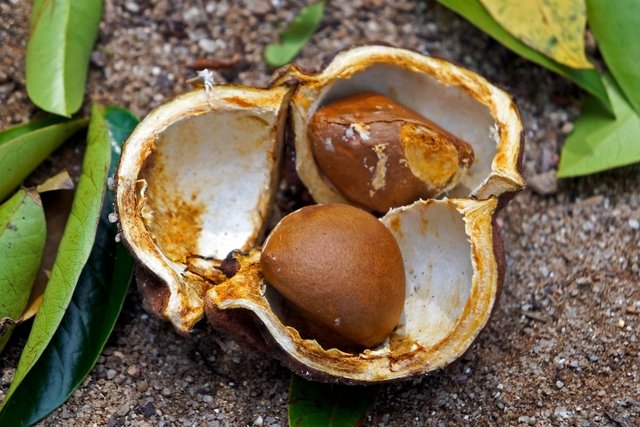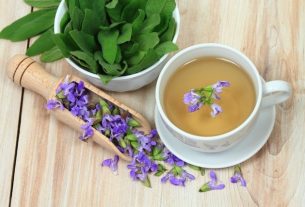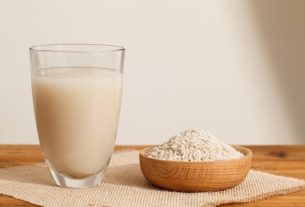Andiroba is a tree, of the species Carapace guaianensiswidely used to assist in the treatment of rheumatism or muscle pain, due to its anti-inflammatory and antirheumatic medicinal properties.
The normally used parts of this plant are the fruits and seeds, from which andiroba oil is extracted, with moisturizing properties, which is why it is widely used in cosmetic products or for the treatment of skin problems, such as eczema or wounds.
Andiroba, also known as andiroba-saruba, andiroba-branca, aruba, sanuba or canapé, can be found in natural product stores or compounding pharmacies, and should be used with medical or herbalist advice.

What is it for
Andiroba has many health benefits, the main ones being:
1. Moisturize your skin
Andiroba oil is rich in linoleic, oleic, palmitic and stearic acids, with emollient and moisturizing properties, which soften and hydrate the skin, in addition to stimulating its regeneration.
2. Help in the treatment of skin diseases
Andiroba, especially its oil, has anti-inflammatory and skin regenerating properties and can be used to help treat skin diseases, such as eczema, ringworm or wounds.
Additionally, this oil helps reduce skin swelling, itching, or redness caused by skin problems.
3. Reduce hair volume
Andiroba oil, when applied to the hair, helps reduce hair volume by promoting hydration, in addition to regenerating strands and leaving hair shinier.
4. Decrease muscle pain
Due to its anti-inflammatory and analgesic properties, andiroba oil can also help reduce muscle pain when applied directly to the affected muscle.
5. Heal wounds
Andiroba oil is rich in limonoids, such as gedunin, and carapanodeids C and R, with healing properties that help in the healing of skin wounds.
Furthermore, this oil stimulates collagen production in the skin, promoting the formation of a healthy scar.
6. Repel insects
Andiroba oil can be used in repellent products and even applied to the skin to treat insect bites due to its anti-inflammatory properties. Discover other natural repellent options.
7. Help in the treatment of malaria
A study (1) carried out in vitro and on rats in the laboratory, showed that andiroba limonoids have antimalarial action against P. falciparum, which can help in the treatment of malaria. However, studies in humans are still needed to prove this benefit. Understand how malaria is treated.
8. Fight parasitic diseases
Andiroba oil can also help fight parasitic diseases, such as chiggers, for example, due to its antiparasitic properties.
9. Help in the treatment of rheumatism
Due to its anti-inflammatory and antirheumatic properties, andiroba can be used to help treat rheumatic diseases, such as rheumatoid arthritis or osteoarthritis, for example.
10. Fight a sore throat
Andiroba can be used to help treat sore throat and tonsillitis, for example, as it has anti-inflammatory properties.
How to use
Andiroba can be used in the form of oil extracted from the fruit seeds or tea prepared with its leaves.
1. Andiroba oil
Andiroba oil can be easily found in health food stores and is often used as a massage oil, as it is capable of hydrating the skin and stimulating its regeneration.
Therefore, andiroba oil can be applied to the skin at least 3 times a day for it to have benefits.
This oil can also be added to moisturizing creams, shampoos and soaps, helping to improve the appearance of skin and hair, reducing volume, promoting hair regeneration and making it shinier.
Andiroba oil should only be used on the skin and should not be consumed orally.
2. Andiroba tea
Andiroba tea should be prepared using its leaves to help treat inflammation, worms, fever or skin problems.
Ingredients
- 1 spoon of andiroba leaves;
- 1 cup of water.
Preparation mode
Place the andiroba leaves in a cup of boiling water and let it rest for about 15 minutes. Then strain, wait for it to cool and drink up to twice a day.
Possible side effects
In general, andiroba is well tolerated, and no side effects related to its use have been described.
However, it is important that andiroba is used with caution and under the guidance of a doctor or herbalist.
Who shouldn’t use
Andiroba should not be used during pregnancy or breastfeeding, as there are not enough studies on its safety at these stages.

Sign up for our newsletter and stay up to date with exclusive news
that can transform your routine!
Warning: Undefined array key "title" in /home/storelat/public_html/wp-content/plugins/link-whisper-premium/templates/frontend/related-posts.php on line 12
Warning: Undefined array key "title_tag" in /home/storelat/public_html/wp-content/plugins/link-whisper-premium/templates/frontend/related-posts.php on line 13



